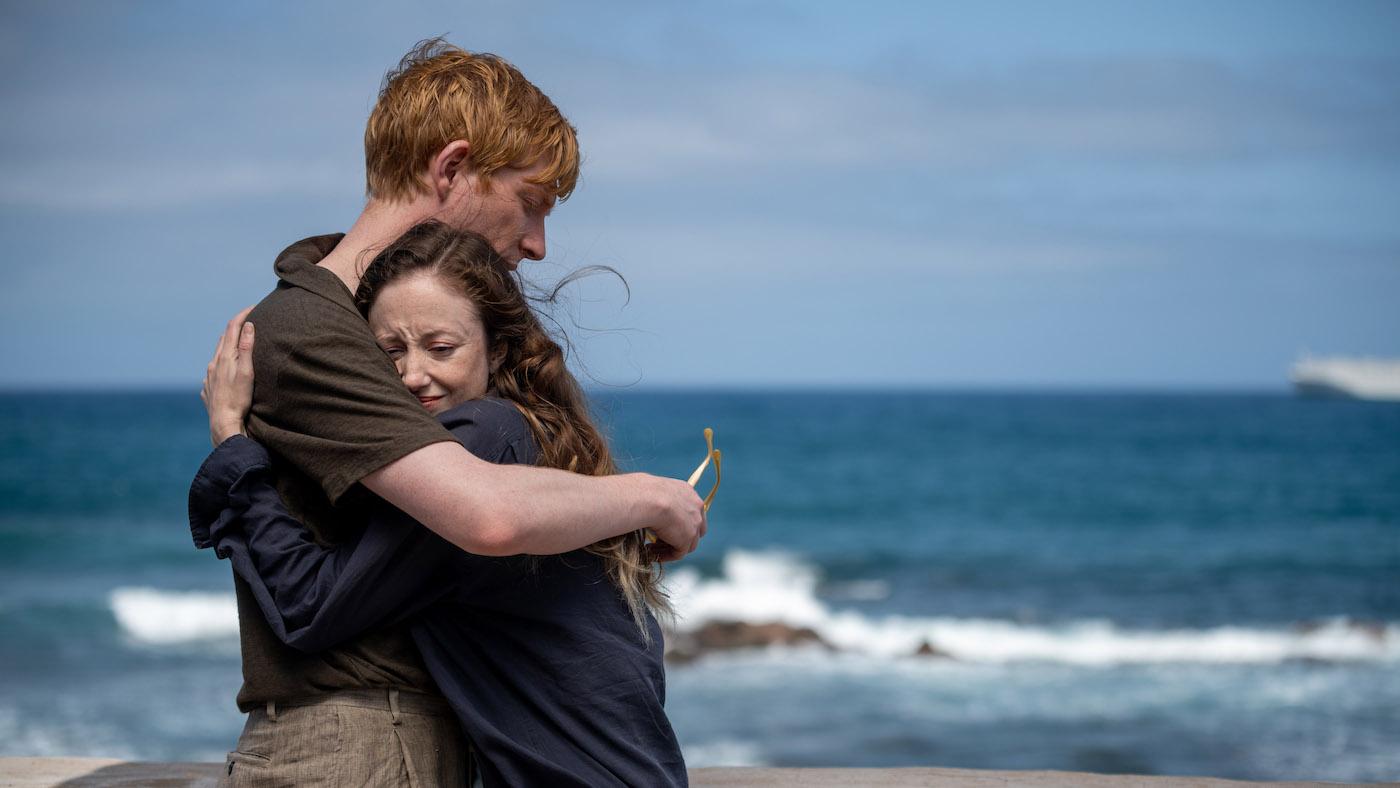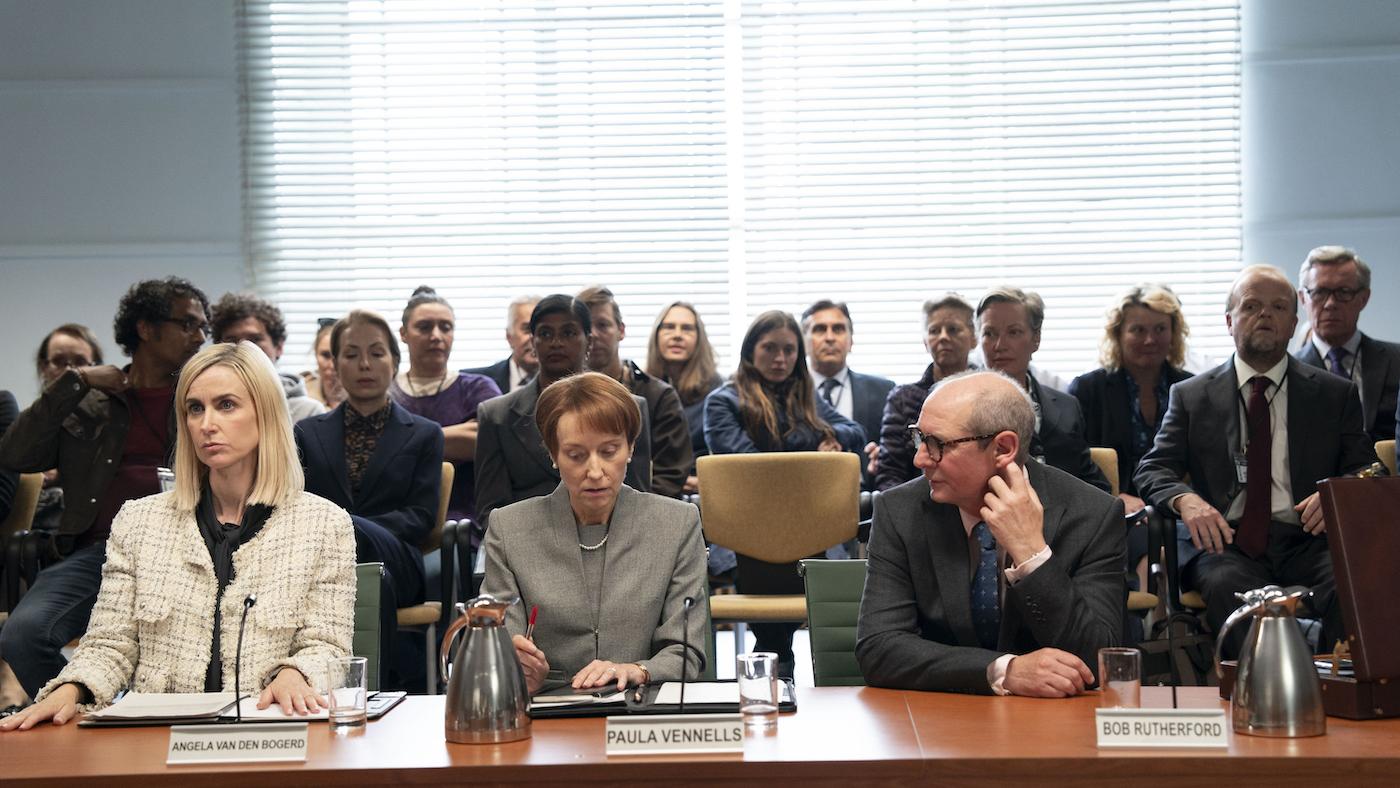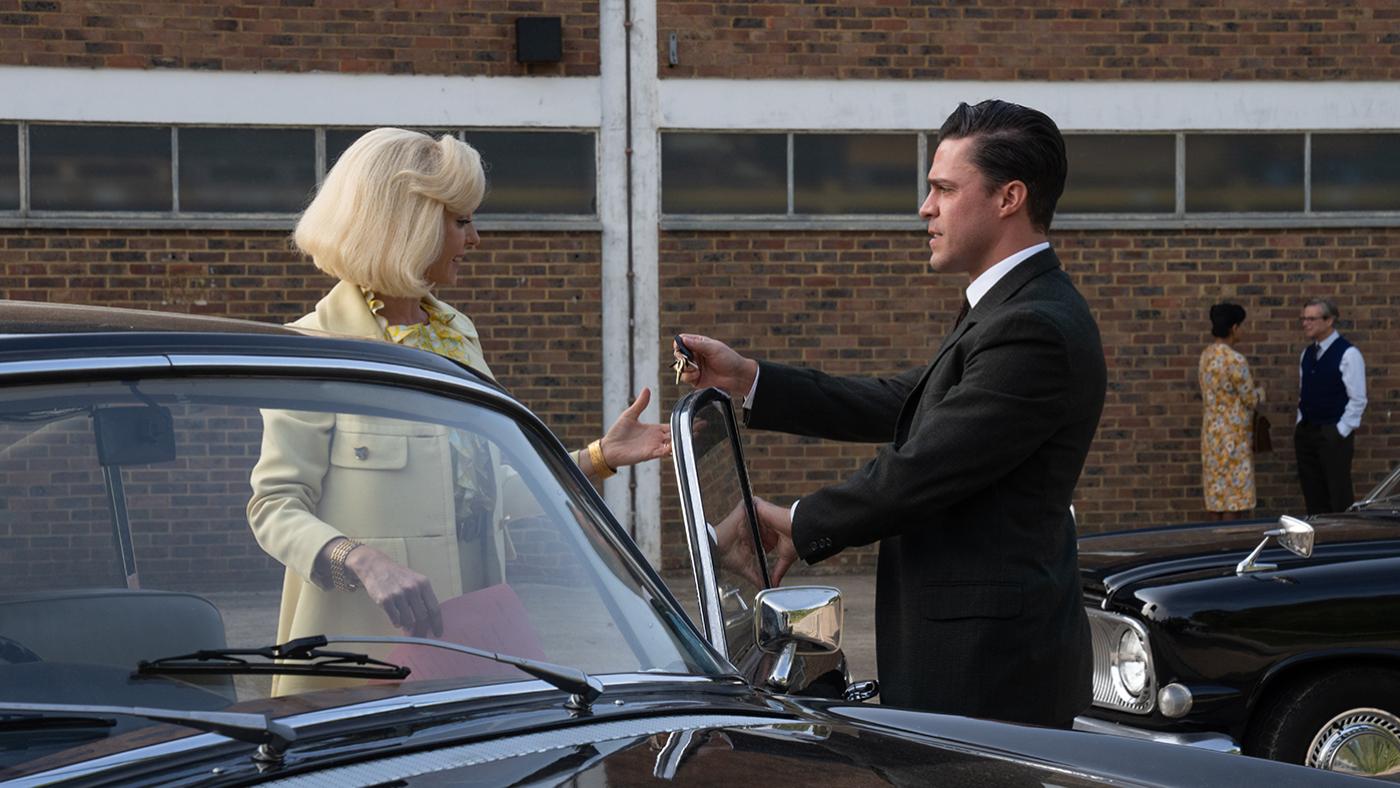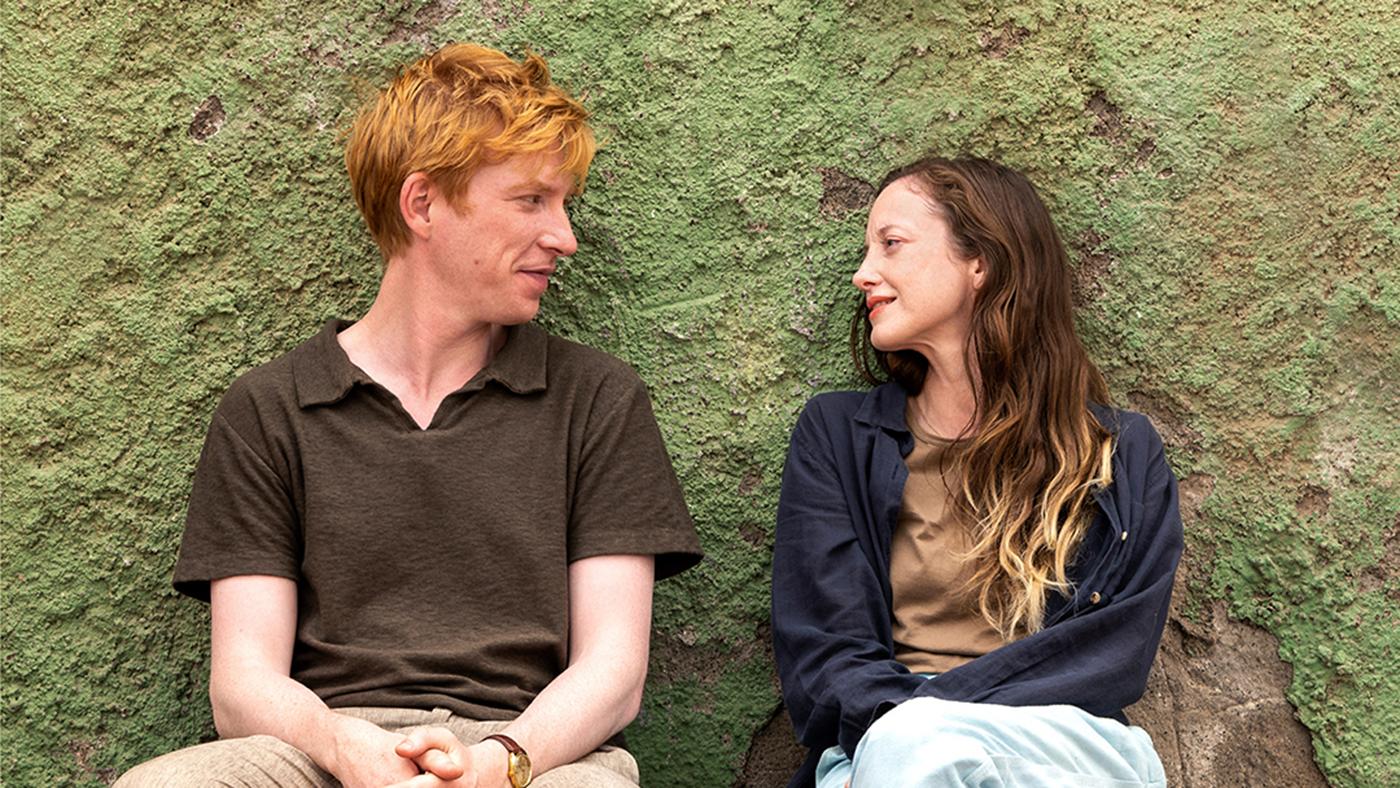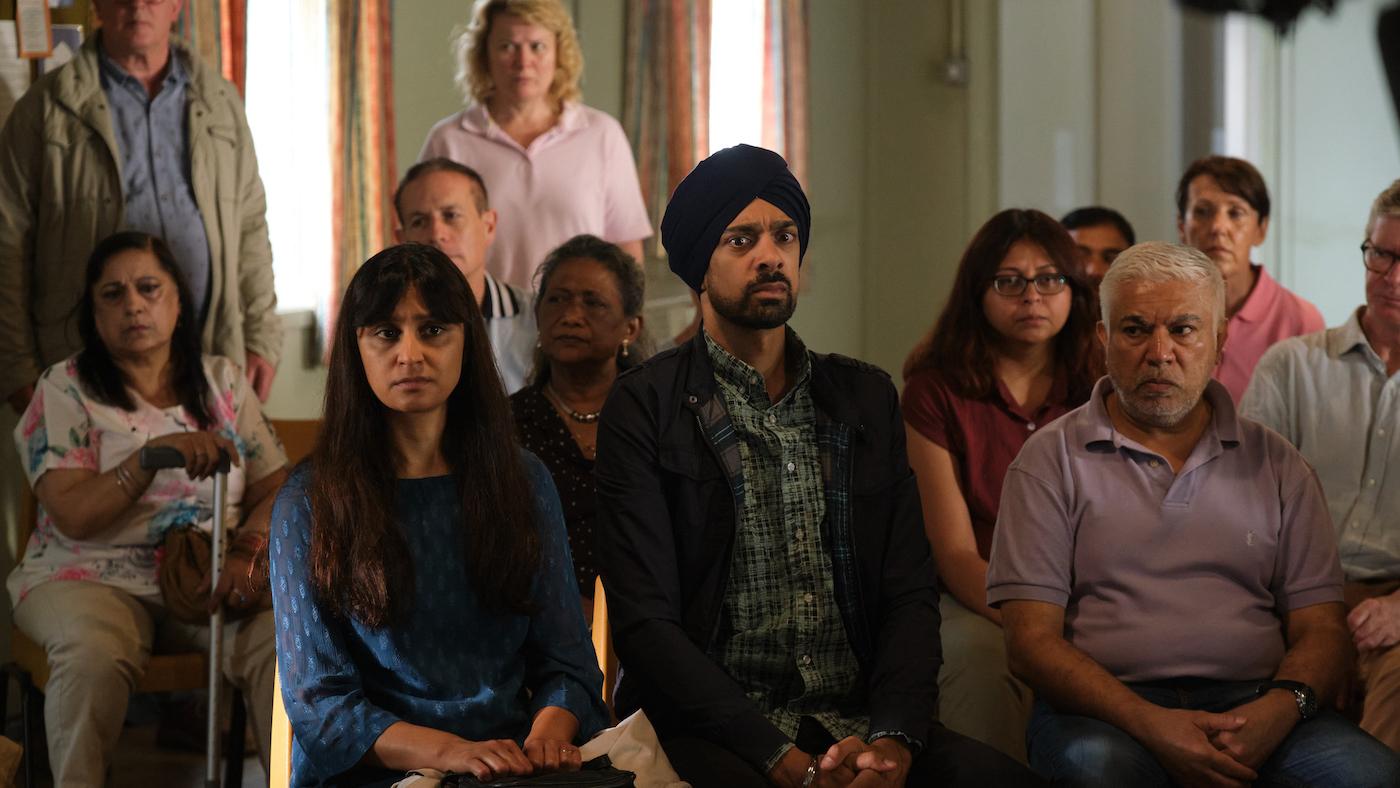'Funny Woman' Recap: Episode 4
Daniel Hautzinger
January 28, 2024
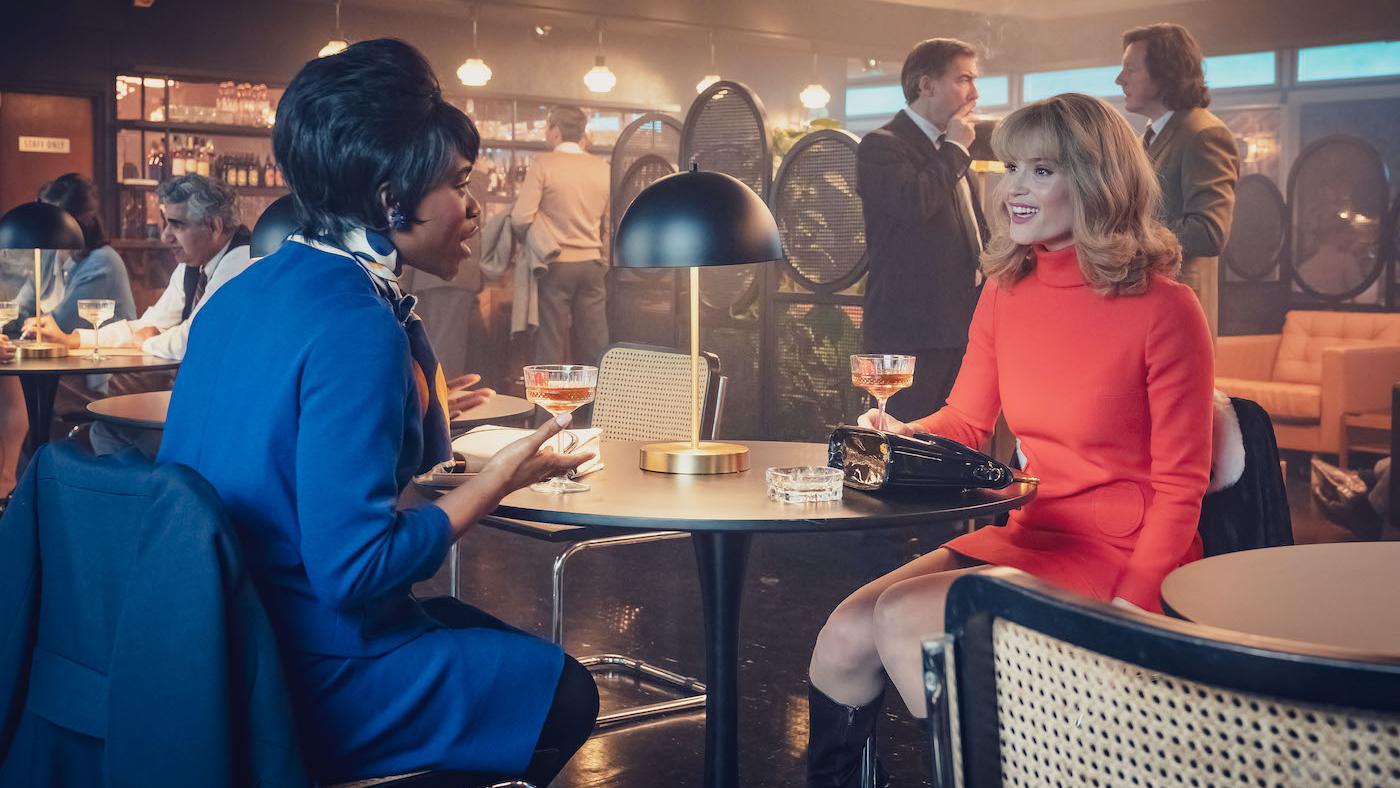
Funny Woman airs Sundays at 9:00 pm on WTTW and streaming. Recap the previous and following episodes.
Keep up with your favorite dramas and mysteries by signing up for our newsletter, Dramalogue.
“Jim and Barbara” is a roaring success, propelled in part by the real-life romance of its stars, Clive and Barbara. They’re hounded by paparazzi and appear on talk shows together, helping boost the popularity of their sitcom.
While their relationship grows, the marriage of Dennis and his wife Edith weakens. She wonders aloud if he should be with someone funnier, someone like Barbara – and his immediate response is that Barbara’s unavailable. Edith has been reading philosophical essays about comedy in the hope of bonding with Dennis over his work; he offers to visit her at work, at the taping of one of her segments on an arts and culture show.
But he forgets to show up, upsetting her. When he buys her a bottle of wine as a peace offering, she mostly ignores it and him, citing a long day. He offers to have her visit him at work, by attending a taping of the sitcom – and she’s within her right to forget to go, like him.
Barbara has also offered to get tickets to a taping for her roommate, Marge, but Marge suggests that Barbara instead put her dad up in a nice hotel and let him go. Marge is venturing outside her box in other ways, trying a yoga class but ending up going to the pub with a group of forward-thinking women who meet in the same building.
Marge imbibes some feminism from the women, which colors her conversation with Barbara about Clive. Why hasn’t Barbara moved in with Clive, since she’s always staying at his place? Or why doesn’t Clive propose to her? Barbara answers that they have to be careful; there’s a campaign to “clean up television,” and so the higher-ups at the station want edgy shows like “Jim and Barbara” to rein things in, and their stars to keep clean in the public eye. There can be no “cohabiting” before marriage. Marge points out that there’s more pressure on Barbara than Clive.
Meanwhile, the writers pitch a story in which Barbara is worried that Jim is having an affair with his secretary – but his secretary is a man. Barbara the character dresses up as a man to investigate; Barbara the actress pitches an idea based off her own experience. She woke up one morning at Clive’s to go to the bathroom and found a woman in the house. She assumed it was Clive’s mother and hid in the closet; the woman came in and opened the closet, and Barbara had dressed up, pretending to be a visiting electrician. In fact the woman was Clive’s cleaning lady.
Barbara pitches that her character pretend to be an electrician; Jim recognizes her right away but pretends not to. Bill and Tony want the secretary to be effeminate and coded gay, but Dennis refuses, both because the executive Ted Sargent won’t allow it and because Dennis doesn’t believe they should be coding things so much that only an in elite understands it. He asks Barbara what a working-class northerner like herself would think of a homosexual; she doesn’t think she’s ever met one, but says the sitcom is about modern love, so it should be accepted.
Barbara also suggests another idea: to break the fourth wall, like Lucille Ball. Some of the team objects, but Dennis lets her try – and loves it.
Barbara runs into her friend, the journalist Diane Lewis, at the TV station. Both women have good news: Diane has gotten a job as an on-air reporter on a news show, and Barbara has been offered a role in one of a series of popular films. But both successes should be qualified. Although Barbara and her father like the films because they depict normal, working-class people, Diane points out that the women are either sexualized or frumpy. Barbara’s character is a stripper named Tina Tittley, after all.
And Diane’s first appearance on air is disappointing. The makeup woman doesn’t know how to do makeup on Black skin, and Diane’s first story is a fluff piece on street fashion – she wants to do more serious journalism.
Barbara tells her agent she doesn’t want to do the film, to his shock. He advises her to make the most of her looks while she has them; she walks out on him. She has just visited a comedy club with Dennis and the rest of the team and been amazed to learn about improv. She was especially impressed by a woman improviser who was never sexualized – but her agent disdainfully points out that that woman went to Cambridge.
Another new thing Barbara witnessed at the comedy club was the jargon known as Polari, used in the gay subculture at the time. Dennis has to explain what one of her idols is actually saying.
But she’s less out-of-place than her Aunt Marie and father when they come to London to stay at a posh hotel and attend a taping of her show. They have dinner with Clive, who charms Marie and showers them with special privileges. Afterwards, alone with Barbara at his house, he asks Barbara to move in with him, despite Ted Sargent’s prohibition. Barbara is wary; women are held to different standards.
She leaves the next morning – the day of the taping – to find a reporter waiting outside with photos of Clive canoodling with another woman – the sitcom’s costumer, no less. That evening, the costumer sees how depressed Barbara is and guesses that she knows about the affair. She says Clive told her Barbara knew and was okay with it; she thought they were both advocates of free love.
Barbara cries in her dressing room and refuses to come out. Dennis goes in, and she tells him she can’t do the show; she can’t pretend to be in love with Clive or his character. Dennis tells her that Lucille Ball fought back when Desi Arnaz carried on – Barbara can do the same by being funny. Success is the sweetest revenge.
So Barbara goes and does the show, ad-libbing a bit and actually hitting Clive, to great laughs. The taping ends, and Ted Sargent and Edith both join Dennis and the writers in the production booth. Barbara leaves stage without Clive, who catches up and asks her what she was doing. She begins laying into him – and their microphones are still on, broadcasting to both the audience including her father and aunt and the booth.
Everyone hears that Clive asked Barbara to move in with him, that they’ve been sleeping together, that he’s been sleeping around – and, worst of all, they hear Barbara call Clive a word that could never be broadcast on television in those days.


